The Impact of the CCCFA on Business Lending
Date
15 March 2022
Share

While well intentioned, the changes to the Credit Contracts and Consumer Finance Act 2003 (“CCCFA”) that came into force on the 1st of December, 2021 have had well published negative impacts on lending activity, making it harder and much more intrusive for many borrowers to obtain new lending or even to restructure existing funding.
The intent of the legislation was to reduce the risk of predatory lending on retail customers, particularly from payday lenders, aggressive personal loan providers and prevent some mortgage borrowers getting in over their heads. It is hard to argue with the benefits of this and Finance New Zealand supports that general intent. However, the implementation of this legislative change has been poor.
The main criticism of the legislation relates to overly prescriptive rules, lack of clarity about when lenders can apply common sense to approve an obviously good lend and the need to micro-analyse each borrower’s actual personal income & expenditure. When you combine all of these with personal liability for Directors of lenders who get the process wrong, it has led to many challenges.
The immediate impact can be seen from Jan 2022 lending data, where the first full month with CCCFA changes in play saw a 44% year-on-year decline in new retail credit account openings. The data from credit bureau Equifax New Zealand showed this. Home loan account openings declined by 35% in the same period.
For Finance New Zealand’s business customers, the impact has mostly been one of delay and frustration. Our business clients are generally of a high enough credit quality that we are able to work with lenders to ultimately obtain approvals for their funding needs. However, the degree of information that we need for applications is significantly higher than before and can feel intrusive to some borrowers. For example, we have seen a borrower with a personal net asset position of around $10M put through a painful full application process. They were scrutinised over how much they spend on their children’s school fees when clearly they could afford the lending. Another example was a large property investor requesting a security swap so he could reduce the size of his lending by about half. The additional resource that is being applied by banks and lenders is also slowing the entire process. Bankers’ report to us that their processing time has more than doubled in some instances with the additional scrutiny and record keeping processes they must employ to meet new bank policies. This is adding additional costs, and, in some cases, we have used higher cost non-bank funders to meet fast settlement deadlines that main banks could not deliver by.
Thankfully, some improvements may be forthcoming. On the 11th of March, the government proposed changes that should take place from mid-June. These changes hopefully will begin to ensure the process improves. We want to ensure that good quality borrowers can still obtain reasonable levels of borrowing to fund their business and personal activities, without undue delay or overly prescriptive and intrusive assessment processes. The devil will be in the detail, very little of which has yet been released. https://www.rnz.co.nz/news/business/463104/lending-rules-that-hit-credit-approvals-to-be-eased-government-announces
Similar Posts
12 January 2026
Asset & Equipment Finance LVRs
Purchasing new vehicles, machinery, or equipment often raises one key question: how much deposit is required? The answer depends on more than just the asset. It comes down to LVRs (Loan to Value Ratio's), structure, and lender, policy & appetite. This article explains how asset and equipment finance LVRs work in New Zealand, and why advice matters.

27 November 2025
The Bottom of the Cycle? What the OCR Cut Means for 2026
Shifting interest rates are reshaping the way businesses finance equipment, vehicles and growth. Understanding these changes can help you make smarter, better-timed funding decisions.


Page Links
Contact us
Finance New Zealand Limited L11 BDO Tower, 19-21 Como Street, Takapuna, Auckland 0622 PO Box 65164, Mairangi Bay 0754 T: (09) 222 0320E: info@financenz.co.nzMember of


Proud Sponsors of Auckland Rescue Helicopter Trust
Copyright Finance New Zealand Ltd 2026



